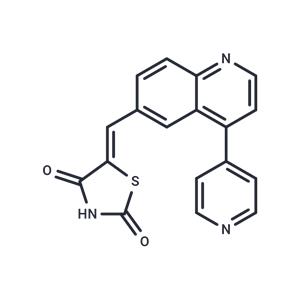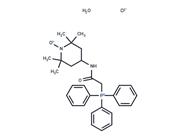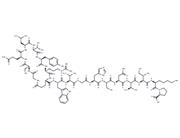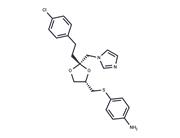| Name | GSK1059615 |
| Description | GSK1059615 has been used in trials studying the treatment of Lymphoma, Solid Tumours, Endometrial Cancer, Solid Tumor Cancer, and Metastatic Breast Cancer. |
| Cell Research | Cells are plate at a density of 1 × 104 cells per well in clear flat-bottomed 96-well plates and incubated overnight. Then, GSK1059615 is added and the plates are incubated for 30 min. At the end of incubation, media is aspirated from the plates, and the plate is wash once with cold PBS. 80 μL MSD Lysis buffer is added into each well and the plates are incubated on a shaker at 4 °C for at least 30 min. For Akt duplex assay, plates are washed with 200 μL/well wash buffer for 4 times and tapped on paper towel to blot. Then, 60 μL lysates is added to each well and the plates are incubated on shaker at room temperature for 1 hour. After another 4 times washing, antibody is added (25 μL per well) and the plates are incubated on shaker for 1 hour and washed again. Finally, Read Buffer is added (150 μL per well) and the plates are read immediately. IC50 values are then obtained.(Only for Reference) |
| Kinase Assay | HTRF In vitro Profiling Assays for PI3K Inhibition: The measurement of the GSK1059615-dependent inhibition of the PI3Ks is accessed using a HTRF based PI3K profiling assay kit. 400 pM enzyme is used in PI3Kα and δ assays, 200 pM in PI3Kβ assays, and 1 nM in PI3Kγ assay. In addition, the PI3Kα, β, and δ assays are run with 150 mM NaCl and 100 μM ATP, while the PI3Kγ assay is run with no NaCl and 15 μM ATP. All reactions are run at 10 μM PIP2. GSK1059615 is serially diluted (3-fold in DMSO), and 50 nL is transferred to a 384-well low-volume assay plate. PI3K Reaction Buffer is prepared by diluting the stock 1:4 with de-ionized water. Freshly prepared DTT is added at a final concentration of 5 mM on the day of use. Enzyme addition and GSK1059615 pre-incubation are initiated by the addition of 2.5 μL of PI3K in reaction buffer. Plates are incubated at room temperature for 15 min. Reactions are initiated by addition of 2.5 μL of 2× substrate solution (PIP2 and ATP in 1× reaction buffer). Plates are incubated at room temperature for one hour. Reactions are quenched by the addition of 2.5 μL of stop solution. The quenched reactions are then processed to detect product formation by adding 2.5 μL of Detection Solution. Following a 1-hour incubation in the dark, the HTRF signal is measured on the Envision plate reader set for 330 nM excitation and dual emission detection at 620 nM (Eu) and 665 nM (APC). The IC50 value is then obtained. |
| In vitro | GSK1059615 (25 mg/kg) effectively inhibited tumor growth in a xenograft mouse model of BT474 or HCC1954 breast cancer cells. |
| In vivo | GSK1059615 inhibited the PI3K pathway and induced cell arrest in G1 phase, and apoptosis was observed.GSK1059615 inhibited PI3K and decreased intracellular AKT phosphorylation at Ser473 in T47D and BT474 cancer cells with an IC50 of 40 nM.GSK1059615 also inhibited mTOR with an IC50 of 12 nM. |
| Storage | Powder: -20°C for 3 years | In solvent: -80°C for 1 year | Shipping with blue ice. |
| Solubility Information | DMSO : 3.3 mg/mL (10 mM)
|
| Keywords | inhibit | mTOR | Mammalian target of Rapamycin | Apoptosis | Phosphoinositide 3-kinase | Inhibitor | PI3K | GSK1059615 |
| Inhibitors Related | Stavudine | 5-Fluorouracil | Acetylcysteine | Kaempferol | Myricetin | Sodium 4-phenylbutyrate | L-Ascorbic acid | Dextran sulfate sodium salt (MW 4500-5500) | Metronidazole | Sorafenib | Tributyrin | Lidocaine hydrochloride |
| Related Compound Libraries | Bioactive Compound Library | Kinase Inhibitor Library | Anti-Cancer Clinical Compound Library | Drug Repurposing Compound Library | Inhibitor Library | Anti-Aging Compound Library | Bioactive Compounds Library Max | Anti-Cancer Compound Library | Anti-Cancer Active Compound Library | Anti-Cancer Drug Library |

 United States
United States



